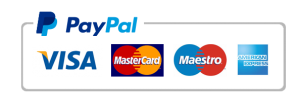8. What advice would they share with younger people to help them prepare for aging?
This assignment is for my Intro to Gerontology class For this assignment prepare 2 interviews. Instructions for BOTH interviews: 1. Typed with font size 12. Both interviews together should be 5-7 p
This assignment is for my Intro to Gerontology class
For this assignment prepare 2 interviews.
Instructions for BOTH interviews:
1. Typed with font size 12. Both interviews together should be 5-7 pages in length.
2. Include the interview questions in your report in a format that enables the reader to know what the person you are interviewing is referring to.
3. Discuss your personal reaction to the interview using at least one paragraph at the end of each report.
Instructions for INTERVIEW 1: Meet with and request an opportunity to interview a person 70 years or older. Do not use real names for the report. Ask and report on the following questions. Feel free to ask your own questions throughout the interview as it naturally flows. Ask at least 3 of your own questions throughout the interview process. Questions/information should include the following:
1. Gather general information about the person’s background. Such as where they were born, grew up, went to school, occupation/profession.
2. Gather information about the person’s family, past and current.
3. Gather information about the person’s current social activities and ask how their current social life compares to their social life as a younger person. Do they experience loneliness?
4. Gather information about their physical health. Has their health had an impact on their overall quality of life?
5. Gather information about their support network and current activity level.
6. Gather information about their perception of the best years of their life and what made them the best years.
7. Gather information about if they could change anything about their current life, what would that be?
8. What advice would they share with younger people to help them prepare for aging?
9. Remember to ask at least 3 of your own questions. Also remember to report your personal reaction to the interview.
Instructions for INTERVIEW 2: Meet with and request an opportunity to interview a caregiver of an aging person. Do not use real names for the report. Ask and report on the following questions. Feel free to ask your own questions throughout the interview as it naturally flows. Ask at least 3 of your own questions throughout the interview process. Questions/information should include the following:
1. Gather information about how the person came to be a caregiver. How long have they been providing care? Are they the only care provider or does the person share the duties?
2. Gather information about the positive things they have experienced as a caregiver.
3. Gather information about how caregiving has impacted their day to day lives.
4. Share the stages of grief for caregivers reviewed in the video viewed in Folder 2. Gather information on whether or not they believe they have or are currently experiencing any of those stages of grief.
5. Remember to ask at least 3 of your own questions. Also, remember to share your personal reaction to the interview.

